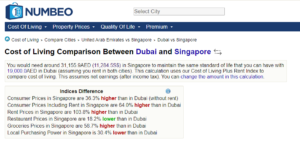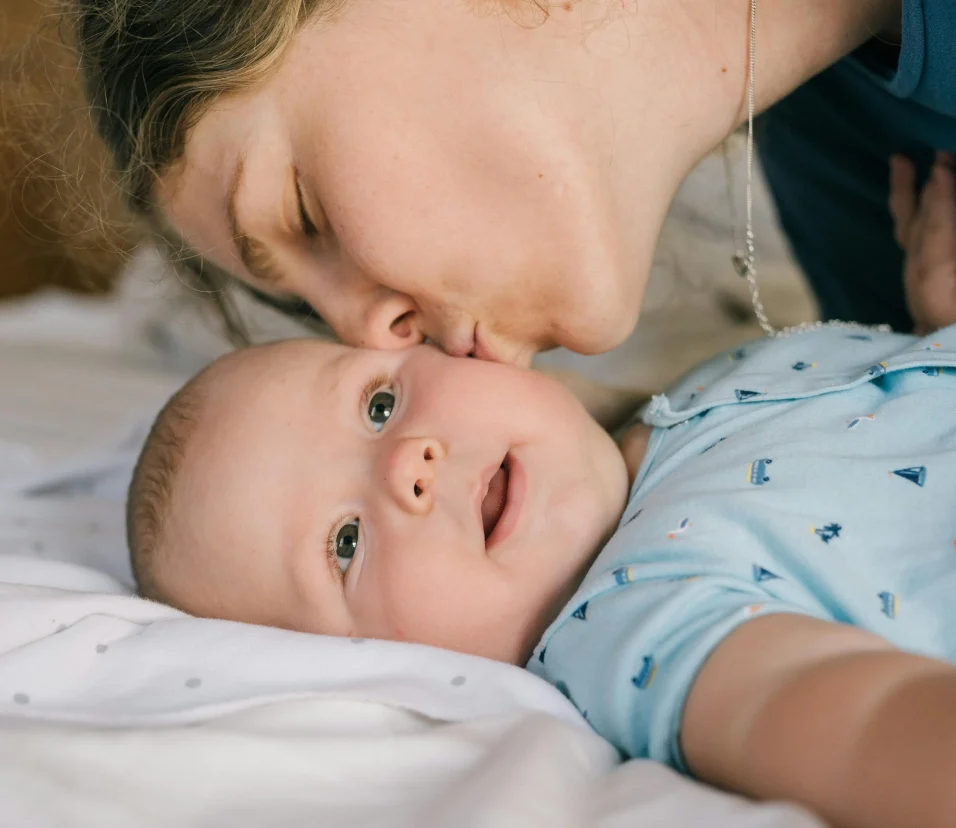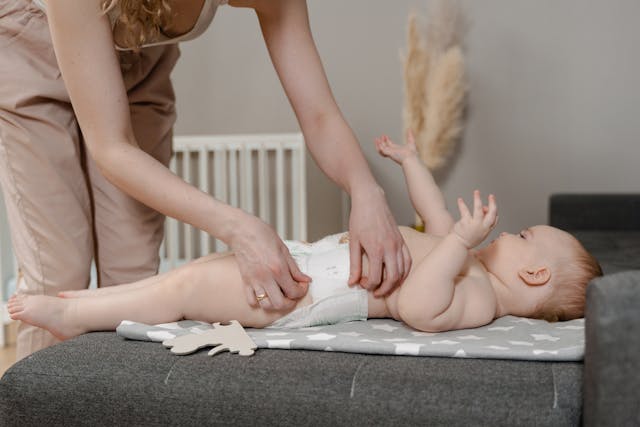Parenting in Singapore: Challenges, Government Support, and Effective Tips
Parenting ranks as one of an individual’s most crucial and rewarding roles. It entails bringing up and fostering children from childhood through adulthood, assisting in their development into accountable and self-sufficient citizens. This blog post will look at parenting in Singapore in greater detail. We will examine the cultural aspects and struggles of parenting and the government’s policies supporting parents. We will also provide some parenting suggestions and techniques for best parenting practices in Singapore.
Whether you are a new or experienced parent, this blog post will provide essential insights and suggestions on navigating the complicated and meaningful parenting journey.
Cultural Aspects of Parenting in Singapore
A variety of cultural aspects influences parents everywhere. Similarly, cultural practices and values significantly impact parenting in Singapore. However, in today’s fast-paced world, parenting can still be a challenging task.
Given Singapore’s high cost of living and competitive educational system, parenting can be extremely challenging. This underlines the need for parents to possess the necessary skills and knowledge to raise capable children.
Parenting Practices and Values in Singapore
A massive focus on academic success often influences parenting practices in Singapore. According to the National University of Singapore, Over 90% of parents in the survey expressed their agreement or strong agreement that Singapore’s education system is one of the best and most competitive in the world. As a result, many parents invest a lot in their children’s schooling, enrolling them in tuition classes and extracurriculars.
The Influence of Confucianism on Parenting in Singapore
Confucianism strongly influences parenting in Singapore since it focuses on the value of education, filial piety, and a sense of duty. As a result of the strong influence of Confucian values in Singaporean culture, parents frequently use its teachings to inform their parenting strategies.
Confucianism emphasizes parental authority and the relation of parents as moral educators. Children are taught to honour their elders, care for family members, and retain harmonious relations with others.
The Role of Extended Family in Parenting
The extended family plays a vital part in parenting in Singapore, as grandparents, aunts, and uncles regularly have an essential role in raising children. According to a survey conducted by the Ministry of Social and Family Development in 2016, among Singaporeans, 97% of the respondents considered it crucial for grandparents and their grandchildren to maintain a close relationship with each other. Extended family members support parents emotionally and practically and act as examples for children.
Check out our article on the ways in which grandparents contribute to the upbringing of their grandchildren.
The impact of Singapore’s education system on parenting
Parenthood in Singapore can be difficult due to various factors that parents face when raising their children. Singapore’s educational system is renowned for its rigour and competitive nature, with real stakes for academic performance.
Parents are often under stress to ensure their children succeed in school, leading to lengthy study hours and tuition classes. This stress can impact parent’s and children’s mental well-being and relationships.
Balancing work and family life
Balancing family life with work is a massive obstacle for many Singaporean parents. Working long hours, a competitive working environment and high success expectations can pose challenges for parents to dedicate quality time to their children. This can cause parents to feel guilty and stressed, impacting the well-being of both kids and their parents.
To learn more about the most challenging parenting phases, look at our article.
The high cost of living in Singapore
Families may struggle to pay for necessities like accommodation, healthcare, and education. Parents may have to work overtime or take on multiple jobs to make ends meet, resulting in time restraints and added stress. Numbeo reports that in Singapore, consumer prices, including rent, are 64.0% higher than in Dubai.

Credits: Numbeo
According to the Dept of Statistics Singapore’s 2020 report, the average monthly income for households in Singapore is SGD 9,189. (approximately USD 6,773). Although there is little room for saving or discretionary spending, the average household expenditure in Singapore is SGD 5,630, or roughly USD 4,152. Parents may need help to give their kids the necessary resources to succeed.
Overview of the Singapore Government’s initiatives to support parenting

The Singaporean government has implemented several policies and initiatives to help parents raise children because it understands the challenges of new parents and realizes how important it is to provide a helping hand to parents.
The Baby Bonus Scheme
A government programme called the Baby Bonus Scheme was created to help parents with the early costs of raising a child.
This program offers parents cash gifts, a Child Development Account, and MediSave contributions, among other benefits.
Two components comprise the Child Development Account: the First Step Grant or “Baby Bonus Cash Gift” and the government’s co-matching of parents’ savings, i.e. the Child Development Account (CDA). The Baby Bonus Scheme has been upgraded for qualifying children born on or after February 14, 2023.
Baby Support Grant
The Baby Support Grant has been spread to include babies born between October 1, 2022, and February 13, 2023. This $3,000 one-time grant was initiated during the COVID-19 pandemic to support and encourage couples to pursue their parenthood plans.
For the first few years, it was accessible to children born or expected delivery between October 1, 2020, and September 30, 2022.
MediSave Maternity Package
Couples can utilize their MediSave funds to cover pre-delivery and delivery medical costs. The withdrawal limits are based on the type of delivery procedure and length of stay at the hospital, as follows:
- Pre-delivery medical expenses up to $900.
- Delivery expenses range from $750 to $2,600, depending on the type of procedure.
- Hospital admission costs up to $550 per day for the first two days and $400 per day thereafter.
The government also provides additional financial aid programmes, such as the Childcare Subsidy and the Workfare Income Supplement, to help parents provide for their families.
Baby Care Rooms
Baby Care Rooms are available at the following locations:
- All new bus interchanges and integrated transport hubs, including Woodlands Integrated Transport Hub.
- New MRT interchange stations on the Thomson-East Coast Line.
- All stations on the Jurong Region Line and Cross Island Line.
In addition, family-friendly amenities equipped with diaper-changing stations are available at:
- All new bus interchanges and integrated transport hubs.
- Rail lines include the Thomson-East Coast Line, Circle Line 6, and the upcoming Jurong Region Line and Cross Island Line stations.
Government-Paid Maternity and Paternity Benefit
Working mothers are entitled to 16 weeks of Government-Paid Maternity Leave. However, those ineligible due to their work arrangements can still apply for the Government-Paid Maternity Benefit.
Working fathers can take two weeks of paid Government-Paid Paternity Leave. However, those not eligible due to their work arrangements can still apply for the Government-Paid Paternity Benefit.
Shared Parental Leave (SPL)
The Shared Parental Leave (SPL) scheme allows working dads to share as much as four weeks of their government-paid parental leave with their wives. This initiative recognizes fathers’ critical role in raising children and encourages them to be involved in their children’s early years.
Balancing Traditional and Modern Approaches to Parenting in Singapore

Traditional parenting methods are still standard in Singapore because of its rich cultural heritage. Modern parenting techniques, such as positive reinforcement and good communication, are becoming more popular. Effective parenting in Singapore necessitates a balance of the two approaches, with each child’s needs being addressed separately.
Nurturing a positive relationship with your child
Effective parenting requires cultivating positive relationships with children. It fosters an atmosphere of encouragement and nurturing that encourages trust, respect, and constructive communication.
By spending quality time with them, paying attention to what they have to say, and showing them love and appreciation, parents can help their children develop positive relationships with one another.
Managing stress and burnout as a parent
Burnout is a problem that many parents frequently face as a result of the strains of parenting. This necessitates stress management and the avoidance of burnout. Parents can manage stress by practising self-care, trying to seek assistance from loved ones, and discovering healthy coping mechanisms.
One useful tip for dealing with stress and burnout is prioritizing self-care activities like exercise, mindfulness, or relaxing hobbies. Finding the time for these events may assist parents in recharging and relaxing.
Encourage independence
While providing support and guidance is essential, parents should encourage their kids to establish independence and self-reliance. Start encouraging kids to take on age-appropriate duties, such as chores or time management.
Use positive reinforcement
Parents should employ positive reinforcement to reward good behaviour rather than concentrating only on correction and punishment. Appreciate and praise children for their accomplishments and positive behaviour, which can improve their self-worth and encourage them to make more positive choices in the future.
Stay involved in your child’s education
Schooling is highly valued in Singapore, and parents can help their children succeed academically by remaining involved in their education. Attend parent-teacher conferences, track their progress, and provide encouragement and backing for their education.
Conclusion
To sum up, parenting in Singapore presents particular difficulties, but there are also a lot of resources and government programmes available to support parents. To succeed as a parent, one should balance conventional and contemporary methods, foster positive interactions with kids, and control stress and burnout.
Parents can give their kids a nurturing and supportive environment that will foster their development by using these suggestions and the resources that are available to them. Parenting is a difficult journey, but it can be a positive and fulfilling experience with the right resources and support.









